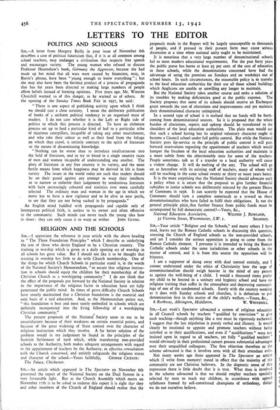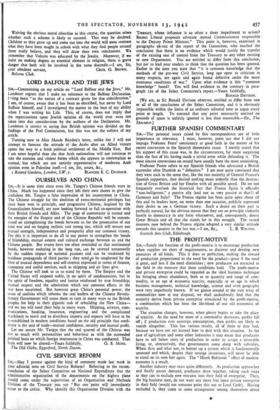Stn,—Last week's Spectator advocated a system of religious education in
all Council schools by teachers "qualified by conviction" to gist such teaching—though anything like a test must be rigorously eschewed. I suggest that the last stipulation is purely verbal and illusory. It would clearly be irrational to appoint and promote teachers without being satisfied as to their qualifications, and even if "qualifications " were not insisted upon in regard to all teachers, yet fully "qualified teachers " would obviously in their profeisional careers possess substantial advantages over their unqualified colleagues. The first objection therefore to the scheme advocated is that it involves tests with all their attendant evils.
Not many weeks ago there appeared in The Spectator an article which (I write from memory) stated in effect that the majority of the community are not Christian believers. In the dogmatic sense of this expression there is little doubt that it is true. What then is involved in the scheme advocated is that we should employ teachers specially selected by tests to teach our children, in accordance with agreed syllabuses framed by self-constituted champions of orthodoxy, things we do not ourselves believe.
Waiving the obvious moral objection to this course, the question arises whether such a scheme is likely to succeed. This may be doubted. Children as they grow up and come out into the world will soon contrast what they have been taught in school with what they find people around them really believe, and they will draw their own conclusions. We remember that Voltaire was educated by the Jesuits. Moreover, if we insist on making dogma an essential element in religion, there is grave danger that both will be involved in the same discredit.—I am, Sir,



























 Previous page
Previous page